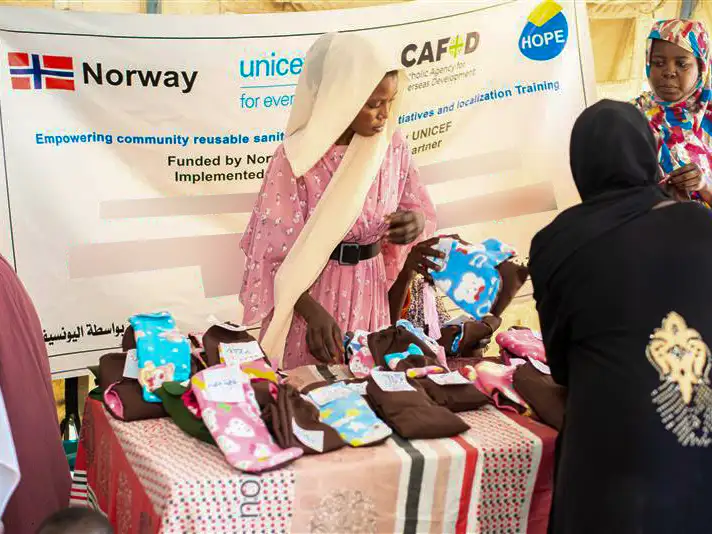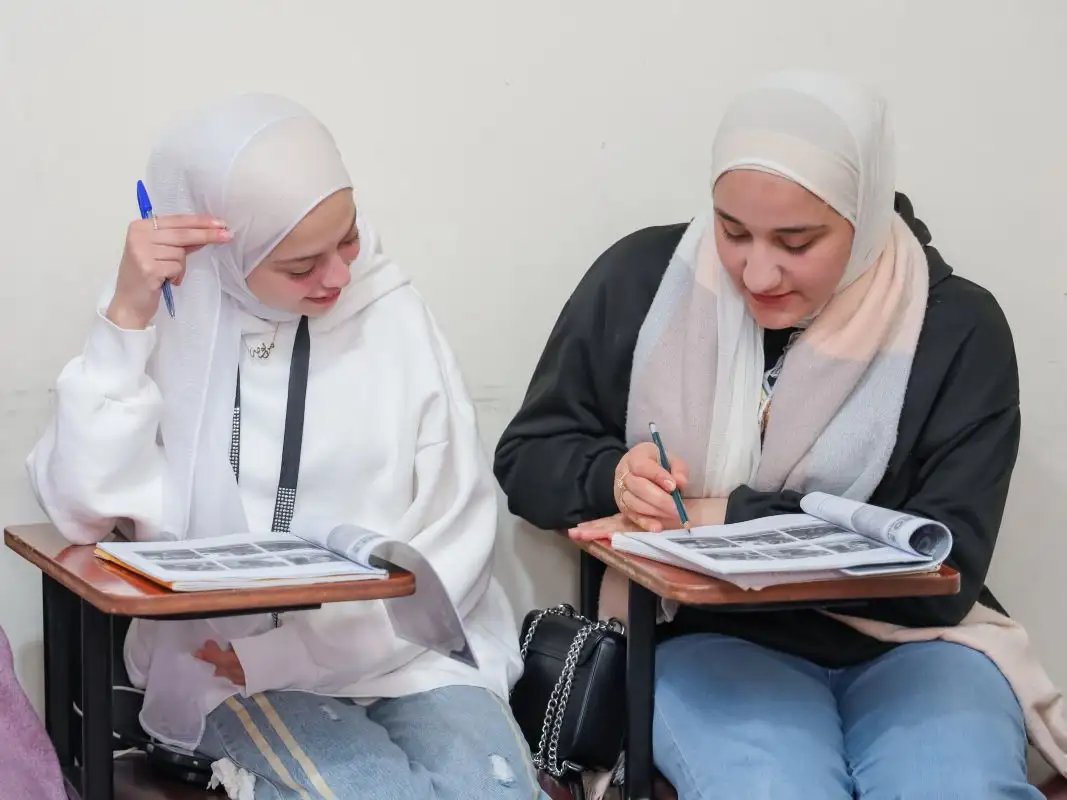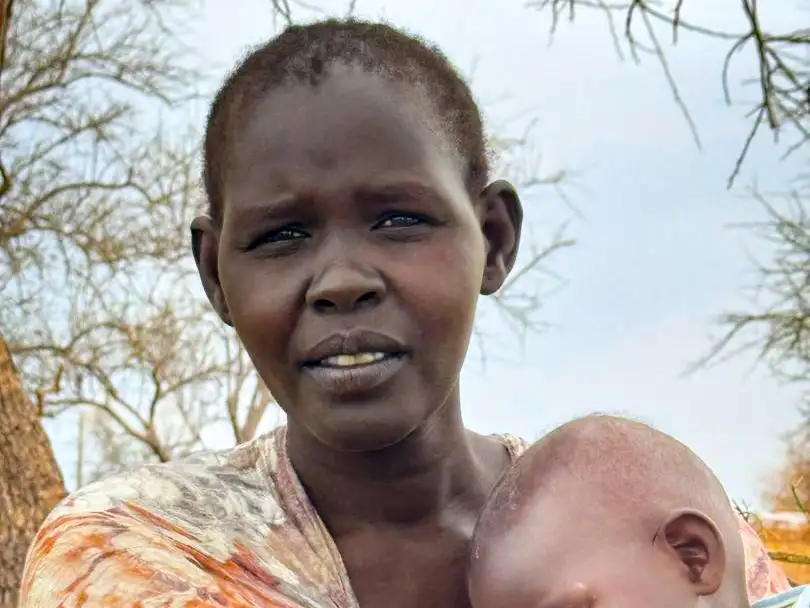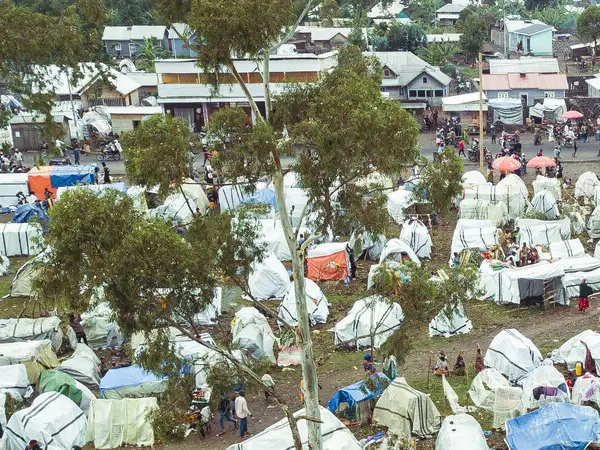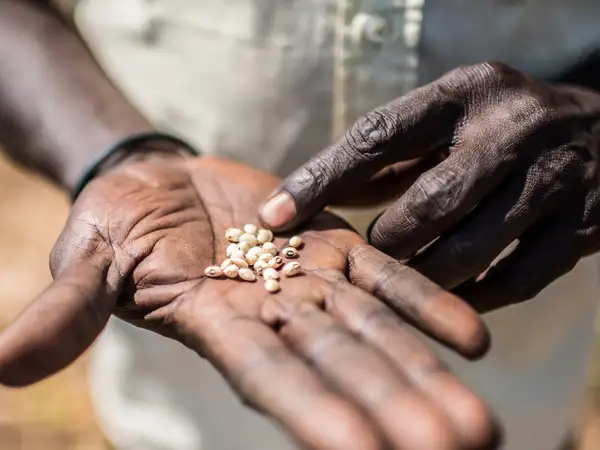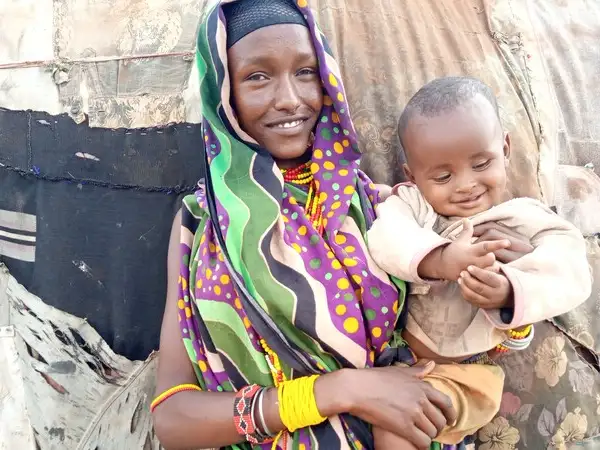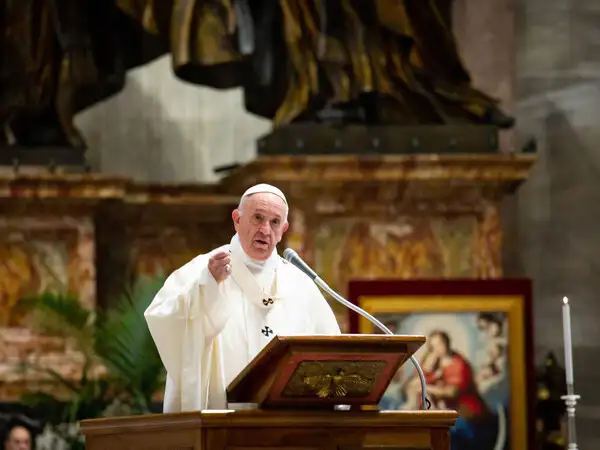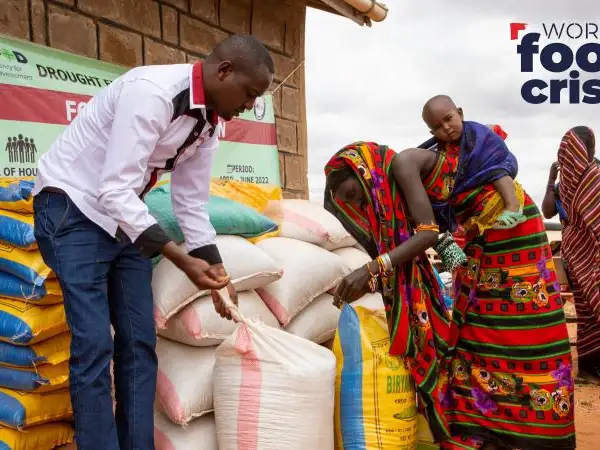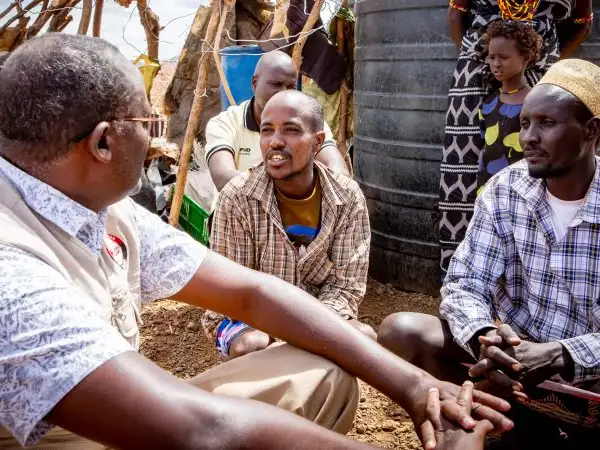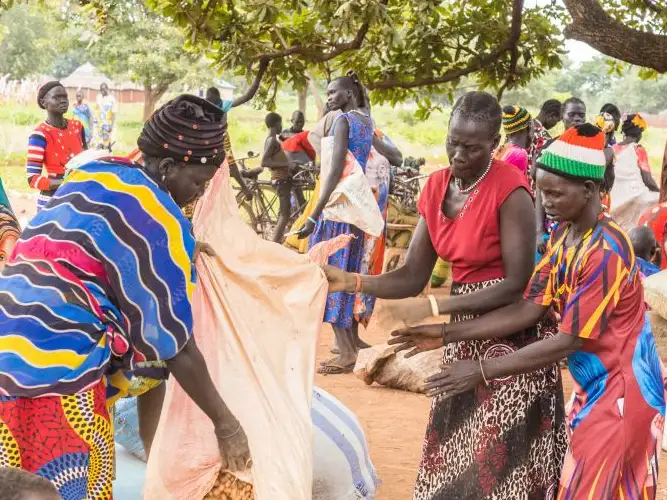

Seeds and tools distribution in South Sudan
South Sudan (officially the Republic of South Sudan) is the newest country in the world. It gained independence in 2011 after separating from Sudan, ending Africa’s longest-running civil war.
Despite being rich in natural resources like oil and gold, communities in South Sudan still face extreme poverty: one in four children are malnourished.
A better world needs all of us. That’s why CAFOD works closely with our sister agency, Trocaire, to support communities in overcoming poverty and injustice. Together, we’re building long-term solutions as well as standing ready to provide short-term emergency aid.
Our impact in 2024
In 2024 we reached 111,935 people in South Sudan.
We constructed 112 toilets to increase hygiene.
We supported 7,800 farmers with agricultural training.
We helped set up 176 village savings and loans associations (VSLAs) with 5,280 members.
We worked with over 80,000 people in disaster risk reduction programmes to prepare for the impact of future floods and droughts.
We supported 2,280 survivors of gender-based violence (GBV) by training 14 GBV case workers and 86 support services such as police, medical personnel and judicial staff.
Why CAFOD works in South Sudan
The current situation in South Sudan is very complex. The need for emergency response has increased due to the war in Sudan. Thousands of Sudanese families, escaping conflict, cross the border into South Sudan every day. This increases the need for emergency aid and support within South Sudan.
Also, South Sudan continues to be affected by internal conflict made worse by the climate crisis. The weather has become more extreme with devastating floods and droughts across the country. Farmers are experiencing failed crops due to the lack of rainfall leaving entire communities without a regular source of food.
How we’re responding
Together, we can build a better world. Donations from people like you can directly support families in South Sudan as they face the injustices of conflict and the climate crisis. Your support means our local Church network can assist national organisations to help communities develop long-term solutions.
We’re currently working on projects that are building resilient communities, promoting women’s empowerment and financial inclusion, responding to water, sanitation and hygiene (WASH) needs, and responding to emergencies.
Current projects
We focus on the most vulnerable and hard-to-reach communities: families who lack access to basic resources and opportunities. This also includes management of natural resources and sustainable food production. Likewise, community-led resource management and disaster risk reduction (DRR) initiatives enable communities to prepare for, respond to and recover from future crises, like flooding and drought.
In South Sudan, many women do not have access to an education, partly due to gender-based discrimination. Approximately, 84 per cent of women cannot read or write, affecting their chances of securing future employment.
South Sudan ranks highly for countries facing the injustice of gender-based violence. Approximately, 65 per cent of women and girls report some form of physical or sexual assault in their lifetime.
CAFOD, alongside local experts, supports women through strengthening community care for survivors of gender-based violence. We listen to the needs of women and work with them to build their lives back. We focus on psychosocial support, the establishment of women’s support groups and safe spaces, encouraging financial inclusion and challenging negative societal norms.
We know that communities are best placed to develop the solutions to the challenges they face. That’s why we’ve been working with local teams to provide access to safe drinking water by drilling new boreholes and fixing broken ones. We’ve also been promoting hygiene practices and distributing hygiene kits, including period packs for women and girls.
Over 1,000 displaced Sudanese people are seeking shelter in a border town in South Sudan every single day. This aggravates the already large need for emergency response in South Sudan – a country where over 6.3 million people lack reliable sources of food.
CAFOD is acting quickly to the growing need for emergency response by working closely with trusted Church partners within the communities. We provide essential resources like food, blankets and clean water thanks to donations from people like you.

Refugee and Conflict Fund
Your donations towards our Refugee and Conflict Fund will help reach vulnerable people fleeing conflict and poverty all over the world.
News from South Sudan
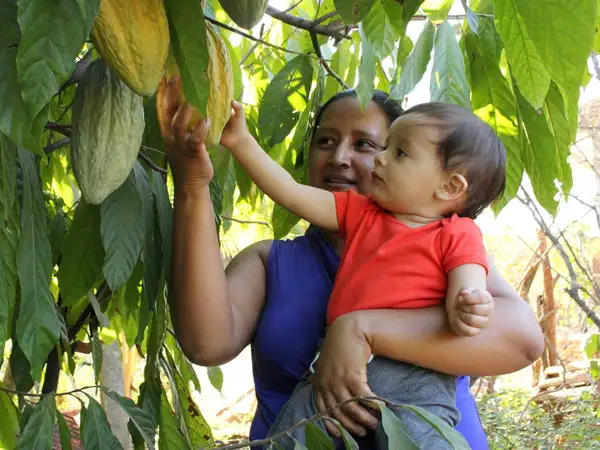
What we do
CAFOD is the official aid agency for the Catholic Church in England and Wales.
With your help, we reach out to people living in hard-to-reach places, in war zones and those who are discriminated against.


